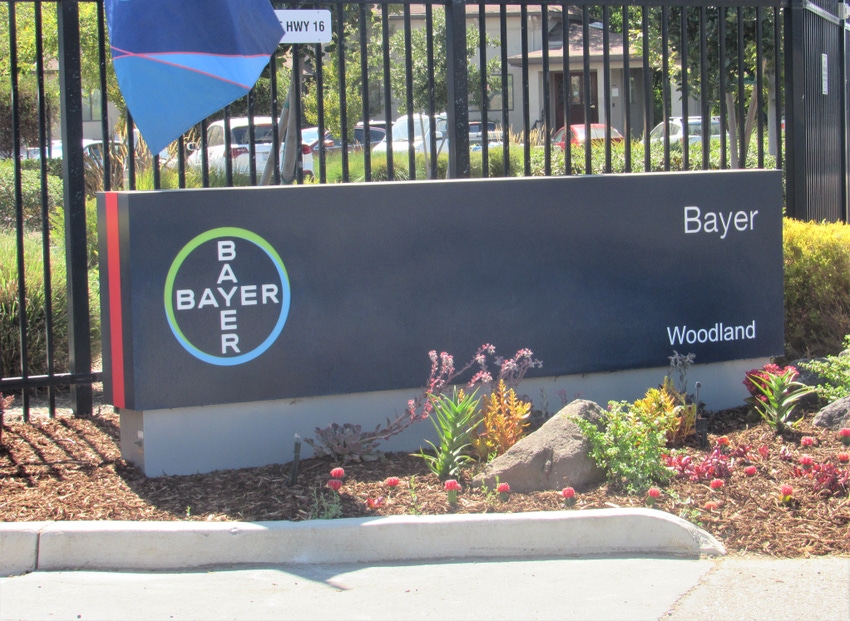
A top Bayer policy official says the U.S. Environmental Protection Agency’s decision to not approve labels claiming glyphosate causes cancer is “helpful” in the company’s bid to reassure consumers about the weed killer’s safety.
EPA leaders said this week the decision follows a comprehensive evaluation of glyphosate by the agency. Among its findings, the 216-page report asserts that human exposure to the product is minimal, as it is not typically inhaled or absorbed into the skin.
The decree appears to further undermine California’s Proposition 65, which passed in 1986 and requires warning labels on product deemed carcinogenic by the state Office of Environmental Health Hazard Assessment (OEHHA).
Glyphosate was added to the agency’s list in 2017, sparking a federal legal challenge that led to a preliminary injunction against the label earlier this year.
“We fully support the EPA and the vigorous review process they do with all crop protection products, including glyphosate,” George Gough, the Bayer Crop Science division’s U.S. director of government affairs, told Western Farm Press. “I think it helps provide clarity for folks who may have had questions.”
Gough gave the interview while attending a field day for growers at Bayer’s fruit and vegetable research facility in Woodland, Calif., on Aug. 13.
In its guidance announcement Aug. 8, the EPA noted it found – as it has before – that there is no risk to public health when glyphosate is used in accordance with its current label. These findings are consistent with the conclusions of science reviews by many other countries and other federal agencies, the EPA asserts.
‘PROBABLY CARCINOGENIC’
California’s OEHHA counters that its listing was based on a finding by the World Health Organization’s International Agency for Research on Cancer (IARC) that glyphosate is both an animal carcinogen and “probably carcinogenic to humans.”
The listing was also supported by IARC’s finding that studies of humans exposed to different glyphosate formulations in different geographic regions at different times reported similar increases in the same type of cancer - non-Hodgkin lymphoma, the state agency explains in a news release.
But EPA officials say their evaluation of available scientific data was more extensive than the dataset that IARC used, and that its cancer classification is consistent with many other international expert panels and regulatory authorities.
“Their review and finding of ‘no carcinogen’ is in line with other regulatory bodies around the world,” Gough said.
Monsanto, which created the glyphosate-based weed killer Roundup before the company was purchased by Bayer, sued in state court over the Prop. 65 listing and lost. However, a federal challenge on First Amendment grounds is still pending, with a hearing date set for February 2020.
In February, the U.S. District Court in Sacramento issued a preliminary injunction stopping California from enforcing the state warning requirements involving glyphosate’s carcinogenicity, in part on the basis that such a label may be false or misleading.
Sam Delson, the OEHHA’s deputy director for external and legislative affairs, told Western Farm Press in an email he is unaware of any plan for the state to take legal action against the U.S. EPA because of its latest decision. The OEHHA has been removed as a defendant in the federal suit, leaving California Attorney General Xavier Becerra as the sole defendant.
SETTLEMENT TALKS
The decision comes as Bayer AG is proposing to pay as much as $8 billion to settle more than 18,000 U.S. lawsuits alleging its Roundup herbicide causes cancer, according to Bloomberg News. Plaintiffs’ lawyers want more than $10 billion to drop their claims, and talks are ongoing, the wire service reports.
Juries in three cases that went to trial found Bayer liable, awarding plaintiffs billions of dollars in damages.
“It’s helpful that EPA came out with that clarification,” Gough said.
The EPA’s move has rekindled a debate over the herbicide’s safety, with the Center for Biological Diversity’s Brett Hartl calling the agency “the biggest cheerleader and defender of glyphosate,” according to The Associated Press.
But many agricultural leaders have issued statements praising the EPA’s guidance. Riverdale, Calif., cotton and specialty crop grower Mark McKean, who serves on the National Cotton Council Board and is a member of the American Cotton Producers, applauds what he sees as the EPA’s “willingness to stand behind their science,” he says.
“As a farmer I know that, for pesticides, the label is the law,” he says, “and it is well within the bounds of the Federal Insecticide, Fungicide, and Rodenticide Act (FIFRA) for EPA to deny labeling that is not confirmed by science as they are doing with California’s mislabeling of glyphosate as a carcinogen listed under the state’s Proposition 65 law.”
Suzanne Rutherford, a California sugarbeet grower, agrees.
“Through Proposition 65, California has only created consumer confusion about glyphosate and perpetuated inaccurate information,” she said in an EPA news release. “The sugarbeet growers in California appreciate these new actions by EPA to ensure consumers have accurate information about glyphosate."
About the Author(s)
You May Also Like






